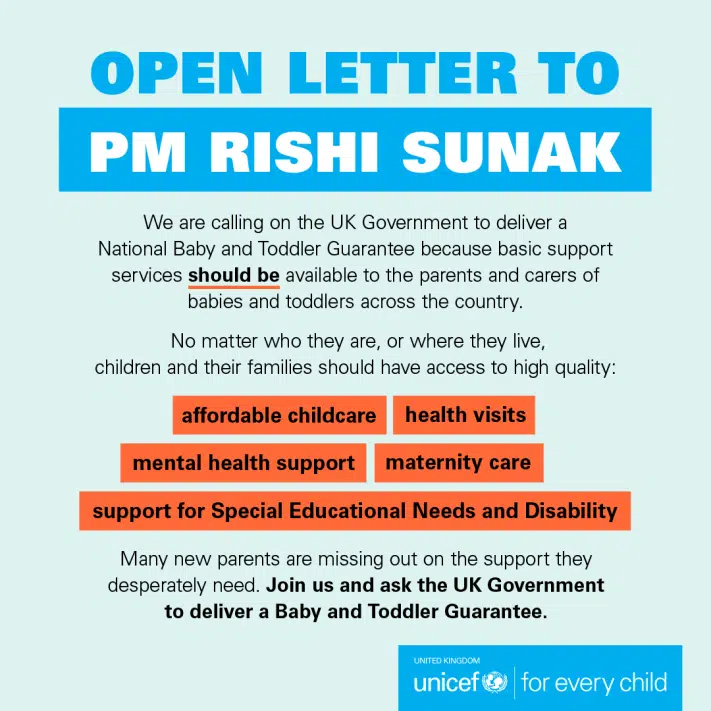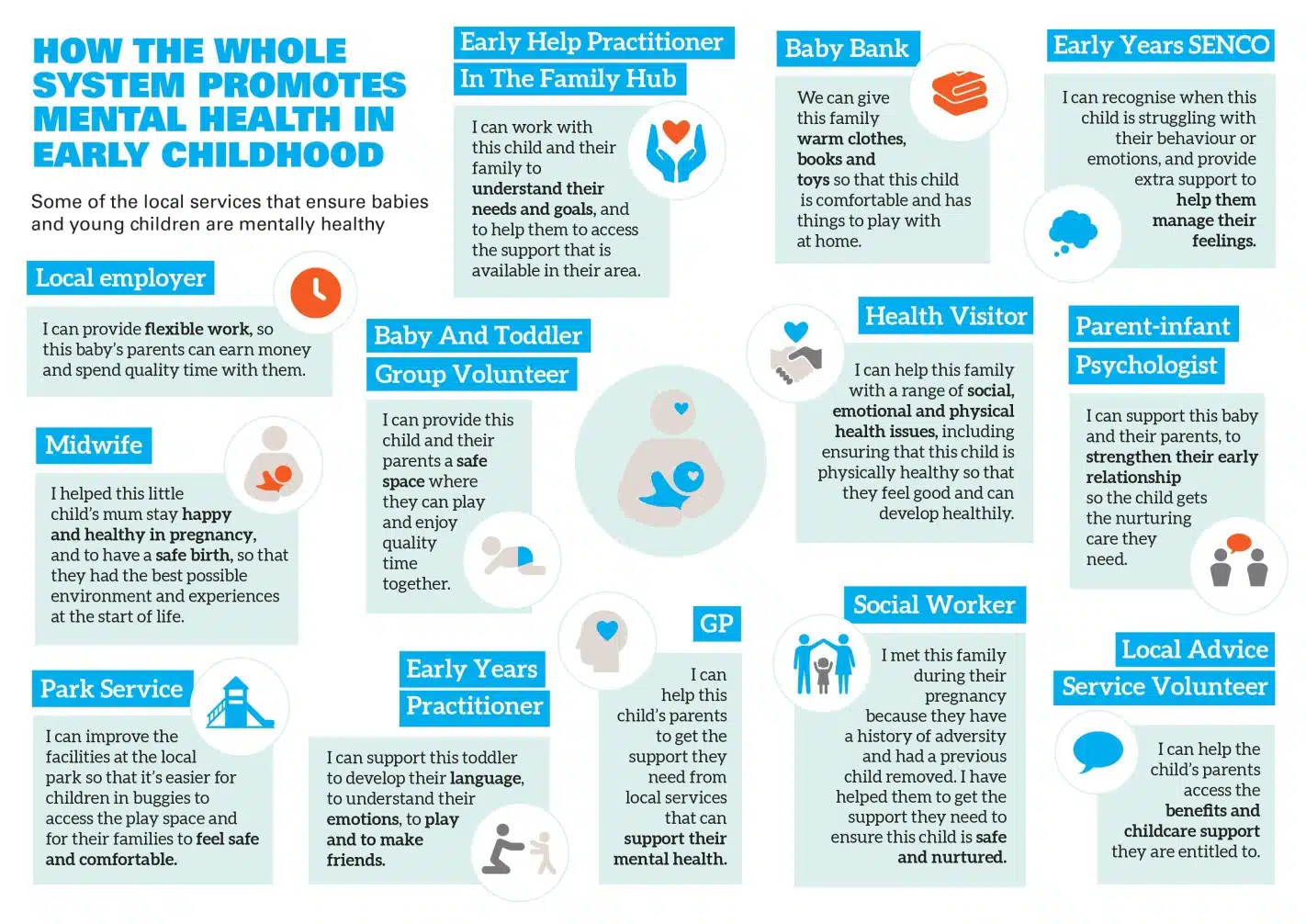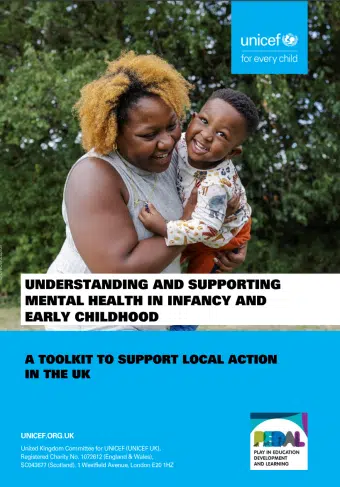Today’s report Early Moments Matter: Guaranteeing the Best Start in Life for Every Baby and Toddler in England, published by UNICEF UK, presents stark findings that over 2 million families with children under 5 in Britain are struggling financially or with their mental health. The report, which includes data from a new YouGov poll, reveals that 1 in 3 parents – over 1 million families – are struggling to get any professional support, with 37% struggling to get help when their child is unwell.
The report highlights how basic support services like health visiting, mental health support, affordable early education and childcare should be available for everyone regardless of where they live – but instead, gaps in availability means that families across the country are missing out. UNICEF UK warns that waiting lists are long, provision is patchy and, in some areas, not there at all. Despite the unequivocal evidence on the importance of the first years of a child’s life, the charity warns that this lack of basic support is putting children’s immediate and long-term wellbeing and development at risk, and it is also having a damaging effect on parents’ mental health.
UNICEF UK is calling on the Government to address this by providing a “Baby and Toddler Guarantee” through a nationally-recognised suite of connected services, with accountability for their delivery held at the highest level of government. The Baby and Toddler Guarantee should include accessible, quality, and fully resourced maternity services, health visiting support, mental health support, SEND provision, infant feeding support, and early childhood education and care.
The Institute of Health Visiting welcomes the call for this “Guarantee” which would put an end to the current postcode lottery of support and also advance the UK government’s mission to ‘level up’ the country. The package of services included in The Baby and Toddler Guarantee should deliver the collective commitments referenced in Start for Life Vision and Family Hubs programme, the Healthy Child Programme and the NHS Long Term Plan, which together cover universal, targeted and specialist support.
Alison Morton, iHV Executive Director says:
“I am grateful for organisations like UNICEF UK who are standing up for the rights of babies and young children, whose voices have been ignored for too long by adults with the keys of power. Lifelong inequalities take root in early childhood, yet babies and young children in Britain today are currently the innocent victims of events that they have no control over. These inequalities are not inevitable, and the report’s authors present a clear plan of action to prevent unnecessary harm. However, it is also clear that, if we fail to take the warnings in this report seriously with meaningful and swift action, they will have dangerous and potentially life-changing consequences for too many of our youngest citizens.”
The report makes the following recommendations to the UK Government:
- Commit to making The Baby and Toddler Guarantee a reality for every baby, young child and family across the country.
- Make early childhood a national priority for the Government with Cabinet-level leadership to drive the delivery of The Baby and Toddler Guarantee and ensure coherence between Government departments.
- Deliver across-Government strategy for early childhood that builds on the vision and commitments in Best Start for Life, and responds to the challenges of workforce, funding, and governance with joint outcomes for early childhood development that sit across departments.
- Commit to track and monitor progress towards delivery of The Baby and Toddler Guarantee for every baby, young child, and family across the country.
In addition to a comprehensive commitment to service provision, The Baby and Toddler Guarantee must also address the “baby blind spot”’ in government decision-making by ensuring that every decision made by any government department considers its impact on and wellbeing of the nation’s youngest citizens. Currently, this would include the government’s evolving response to the COVID-19 pandemic and its response to the cost-of-living crisis.
Sign the Petition
UNICEF UK’s Early Moments Matter (#EarlyMoments Mattercampaign launches today.
Read the report






